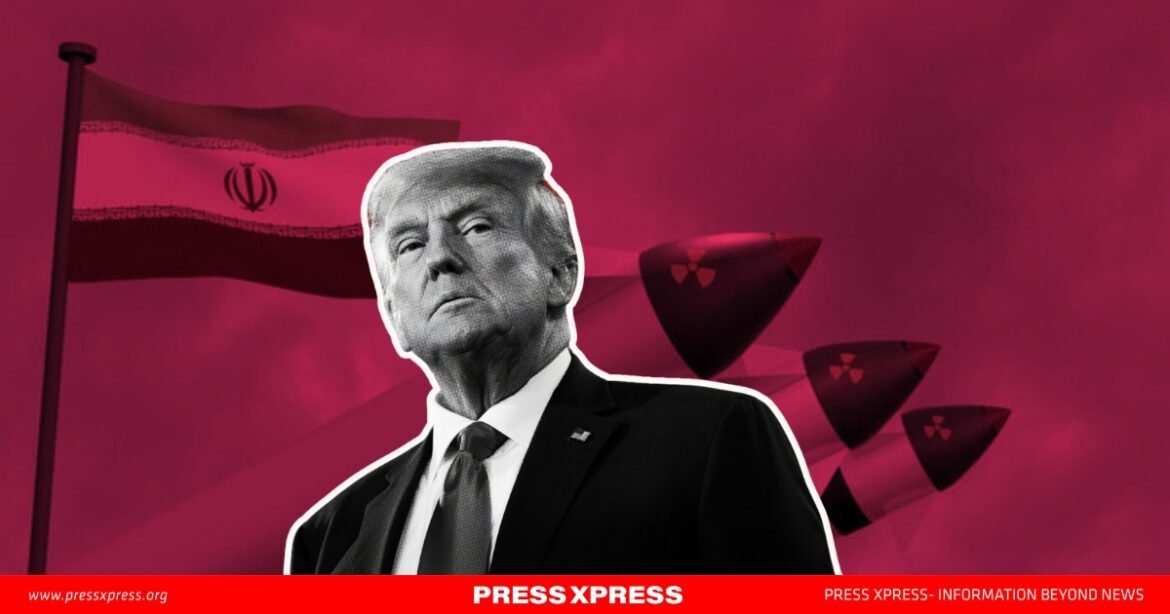Key Highlights:
- Nuclear Escalation: Iran is enriching uranium close to weapons-grade levels, raising concerns about its potential to build a nuclear bomb
- Trump’s Pressure: Trump’s second term could push for harsher sanctions or even military action, escalating tensions with Iran
- Regional Shakeup: A nuclear-capable Iran could trigger an arms race in the Middle East, destabilizing the region and challenging global security
The question of whether Iran will build a nuclear bomb while Donald Trump is in power in the US, and how this might reshape the Middle Eastern political landscape, is deeply complex and hinges on multiple geopolitical, economic, and strategic factors. Analyzing this situation requires understanding the current tensions, the role of international diplomacy, and the evolving positions of key players like the US, Israel, and Iran.
Iran’s Nuclear Program and Escalating Tensions
Iran’s nuclear ambitions have long been a point of contention between Tehran and the West, particularly the US and Israel. Despite Tehran’s official stance that its nuclear program is for peaceful purposes, the country has significantly ramped up its nuclear activities since the US withdrew from the Joint Comprehensive Plan of Action (JCPOA) in 2018 under Trump. Iran has been enriching uranium to levels close to weapons-grade, and experts believe that with enough fissile material, Iran could build nuclear weapons, although it has not yet done so.
The question of whether Iran would push ahead with a bomb depends on internal Iranian policy decisions, especially within the context of rising security threats and regional instability. There are signs of a potential shift in Iran’s strategy. Some Iranian leaders advocate for pursuing nuclear weapons as a deterrent against Israel and to strengthen their position in a region marked by diminishing influence and ongoing sanctions. Meanwhile, others are open to engagement with the West, although this would require significant concessions and a change in US policy.
Trump’s Second Term: Policy Uncertainty
Trump’s re-election brings about uncertainty regarding US foreign policy, especially with respect to Iran. His administration’s “maximum pressure” campaign has already imposed severe sanctions on Iran, crippling its economy and limiting its international influence. Given the expiry of key clauses in the JCPOA, including the snapback mechanism of UN sanctions, the US under Trump may pursue a harder stance on Iran, possibly demanding immediate re-imposition of sanctions or even military action to curb Iran’s nuclear aspirations.
The possibility of military strikes against Iran’s nuclear facilities, a topic openly discussed by Trump and Israeli officials, increases the stakes. Israel views Iran’s potential nuclear capabilities as an existential threat and has hinted at preemptive strikes to neutralize Iranian nuclear infrastructure. If Trump aligns more closely with Israel’s security concerns, this could escalate tensions further, with Iran reacting by accelerating its nuclear program or even openly pursuing a weapon.
The Role of Europe and Regional Dynamics
Europe, particularly the E3 (France, Germany, and the UK), remains critical in moderating the situation. The E3 has been invested in preventing a complete collapse of the JCPOA, but their influence is limited in the face of US pressure. As the snapback clause nears its expiration in October 2025, the Europeans face a crucial decision. If Trump demands the re-imposition of sanctions, Europe could be forced to choose between aligning with the US or protecting their economic interests with Iran.
Regional dynamics also play a significant role. Iran’s nuclear pursuits cannot be viewed in isolation from its broader regional influence. Its role in the Israel-Palestine conflict, its support for various armed groups across the Middle East, and its ongoing tensions with Sunni-majority states like Saudi Arabia complicate matters. The prospect of a nuclear Iran could embolden Tehran to further assert its regional power, potentially leading to a destabilized balance of power, especially if Saudi Arabia or other regional powers pursue their own nuclear ambitions in response.
Potential Impact on the Middle Eastern Political Landscape
If Iran moves closer to acquiring a nuclear bomb, it could trigger a significant shift in the Middle Eastern political landscape. A nuclear-capable Iran would alter the regional security environment, likely provoking an arms race as countries like Saudi Arabia, Turkey, and Egypt could feel compelled to pursue nuclear capabilities of their own. This would escalate regional tensions and could lead to more overt proxy conflicts.
In addition, a nuclear Iran could reshape the US’s strategic interests in the region, forcing Washington to reassess its alliances and its military footprint. The US would face growing pressure from Israel to take more decisive action, possibly leading to military confrontation, while also needing to address its diplomatic relations with key European partners.
In conclusion, whether Iran builds a nuclear bomb under Trump’s leadership in the US will depend on the interplay of US domestic politics, the security environment in the Middle East, and the broader international community’s willingness to engage diplomatically. If Iran does proceed toward nuclear weapons development, the consequences for the Middle East’s political dynamics would be profound, likely leading to a more fragmented, militarized region with increased risks of conflict.


